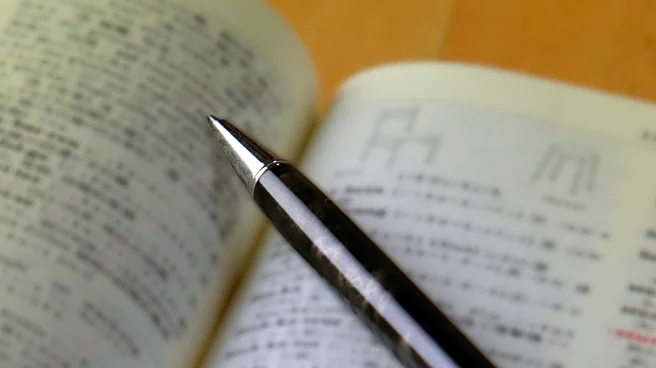What's Happening?
Dictionary editors are grappling with the complexities of defining racist slurs, naughty words, and other divisive language. The discussion, highlighted in NPR's Code Switch, features insights from Stefan Fatsis, author of 'Unabridged: The Thrill of (and
Threat to) the Modern Dictionary.' The program explores how editors at major dictionaries navigate the challenges of documenting language that is often controversial or offensive. This includes debates over terms like the N-word, gender-related language, and new forms of profanity. The role of dictionaries in reflecting societal changes and the evolving nature of language is a central theme.
Why It's Important?
The way dictionaries define and present language has significant cultural and social implications. As society becomes more aware of issues related to race, gender, and inclusivity, the responsibility of dictionary editors to accurately and sensitively document language becomes more pronounced. This process can influence public discourse and perceptions, highlighting the power of language in shaping societal norms. The challenges faced by editors reflect broader societal debates about free speech, censorship, and the role of language in perpetuating or challenging discrimination.
Beyond the Headlines
The discussion around dictionary definitions also touches on ethical considerations, such as the balance between documenting language as it is used and the potential harm that certain words can cause. This raises questions about the role of dictionaries as neutral recorders of language versus active participants in cultural debates. The evolving nature of language and the rapid pace of societal change mean that dictionary editors must continually adapt their approaches to remain relevant and responsible.

















